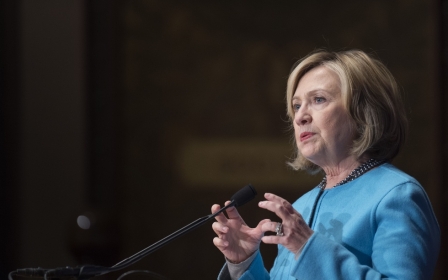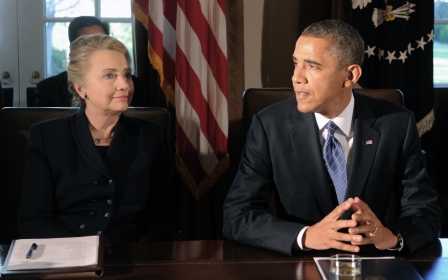Clinton emails on Benghazi attack released

By Jo Biddle
WASHINGTON - Hundreds of emails by former US secretary of state Hillary Clinton were released by the State Department on Friday, seeking to quell a lingering political row about a deadly 2012 attack on a US mission in Libya.
The emails have stoked fresh controversy since Clinton - who is now running for president - admitted to using a private server and email address during her tenure as secretary of state from 2009 to early 2013.
She has also come under fire from Republicans for the department's handling of a militant attack on the US mission in Benghazi in eastern Libya on 11 September 2012 amid allegations of a cover-up of the facts.
"I'm glad the emails are starting to come out. This is something that I've asked to be done as you know for a long time," Clinton said at a campaign event in New Hampshire.
And she insisted she had released all the emails that had any "government relationship".
Both issues are likely to stalk Clinton as she bids to become the first woman to occupy the Oval Office in the 2016 elections, hoping to slide into the seat once held by her husband, former president Bill Clinton.
A total of 296 emails - out of a trove of 30,000 - sent or received by Clinton were released on Friday and uploaded onto a State Department website, which promptly crashed under the volume of traffic.
None appeared to contain anything potentially damaging to Clinton as she pursues her White House bid, although some have been heavily redacted.
Some were long memos from a long-time Clinton family friend and advisor, Sidney Blumenthal, using information from "sensitive sources" with access to Libyan officials.
Initially, Blumenthal said then Libyan president Mohammed Megaryef had been told the attacks were "inspired by what many devout Libyans viewed as a sacrilegious internet video".
But only hours later on 12 September, he sent another long email marked "just in" from his mobile phone.
"Libyan security officials believe that the attack was carried out by forces of the Islamist militia group calling itself the Ansar al-Sharia brigade; working out of camps in the eastern suburbs of Benghazi," it stated.
Clinton forwarded the email from her account to trusted foreign policy advisor Jake Sullivan, saying: "We should get this around asap." Sullivan replied: "Will do."
Condolences
There were also messages of condolences from senior State Department staff at the deaths of the four Americans, and tributes to Clinton for her speech at Andrews Air Force base when the bodies were brought home.
"Your remarks this afternoon at Andrews were wonderful," wrote then deputy secretary Bill Burns on 14 September. "Thanks for doing so much for our institution on such a sad day."
Clinton and her staff also closely monitored an appearance by national security advisor Susan Rice when she took to the Sunday morning talk shows on 16 September to discuss the attack.
"She wasn't asked whether we had any intel. But she did make clear our view that this started spontaneously and then evolved," Sullivan wrote to Clinton.
"The only troubling sentence relates to the investigation specifically," he added, after Rice told ABC television's "This Week" that the administration would have to wait and see if things "might have unfolded differently in different circumstances".
Many of the other emails appear to be press articles being forwarded to Clinton by her chief of staff Cheryl Mills and other aides.
Redactions
"The emails we release today do not change the essential facts or our understanding of the events before, during or after the attacks," State Department deputy spokeswoman Marie Harf insisted.
Part of one email from Sullivan relating to the arrests of suspects in the Benghazi case was classified at the request of the FBI, even though it was not deemed to be secret at the time it was sent.
Clinton has said she used her own server and email address for "convenience" and turned over some 55,000 paper pages to the State Department from emails sent on two private addresses ([email protected] and [email protected]).
A State Department team has been busy digitising them and plowing through the emails to black out any classified or sensitive information.
Middle East Eye propose une couverture et une analyse indépendantes et incomparables du Moyen-Orient, de l’Afrique du Nord et d’autres régions du monde. Pour en savoir plus sur la reprise de ce contenu et les frais qui s’appliquent, veuillez remplir ce formulaire [en anglais]. Pour en savoir plus sur MEE, cliquez ici [en anglais].



